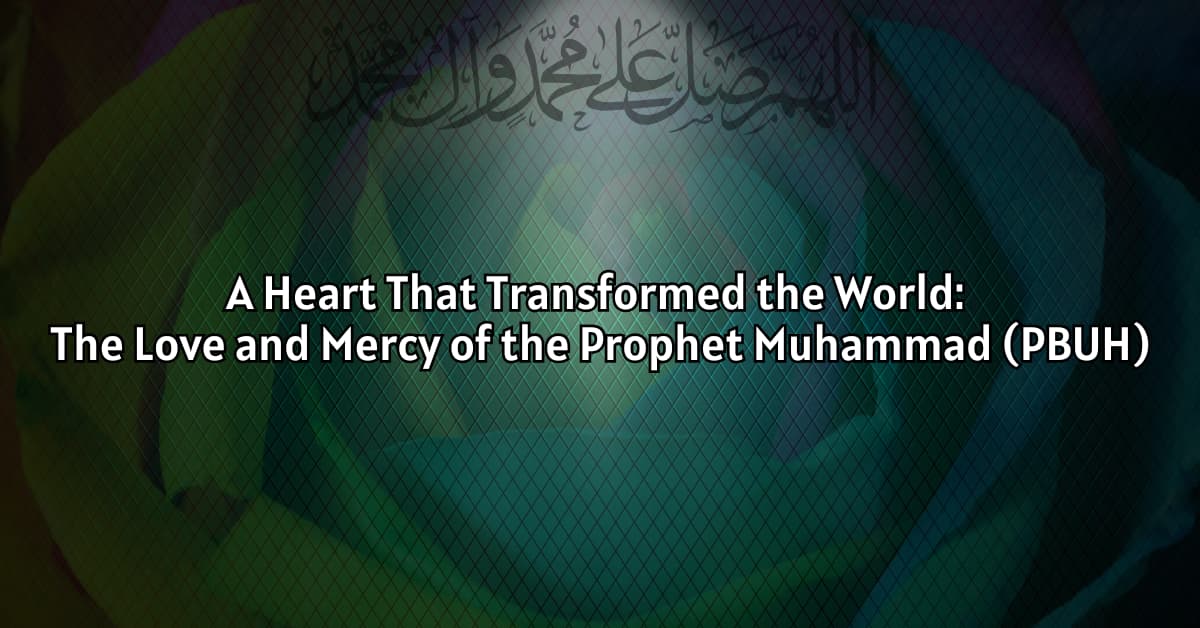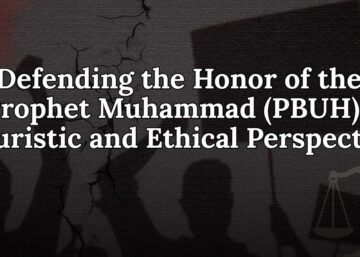The life of the Prophet Muhammad (PBUH) is a beacon of light in the history of humanity. His character was not just exemplary but divine, combining strength with humility, justice with mercy, and leadership with servitude. He was the one whose presence transformed the hardest of hearts, whose smile was a source of comfort, and whose actions embodied the highest moral ideals. To love Him is not just an obligation but an instinctive response for anyone who learns about his life. In an age where accurate role models are rare, studying His character provides the ultimate guidance for navigating life’s trials with dignity and grace. Islamic history is replete with descriptions of his sublime character. Among the most notable works is Imam Abu Ḥamid al-Ghazali’s Iḥyaʾ ʿUlum al-Din, which provides moving narratives of his ethical and moral virtues. This article offers a glimpse into the noble traits that made Him (PBUH) the most beloved and respected personality in history.
His Forbearance, Courage, and Justice
The Prophet Muhammad (PBUH) was known for his immense patience and resilience. He bore the hardships inflicted upon him with unparalleled forbearance, never retaliating for personal grievances. His courage was evident on the battlefield, where even the bravest warriors took refuge behind him.
Anas bin Malik reported that in the heat of battle when others would hesitate, the Prophet Muhammad (PBUH) was the one who charged forward without fear (Musnad Aḥmad, no. 654). Despite His strength, he was never oppressive. Even when he found one of His dearest Companions murdered in Khaybar, He (PBUH) did not act in haste. Still, he upheld justice, ensuring the guilty were punished only with conclusive proof (Saḥiḥ Bukhari, no. 6142).
His Unmatched Generosity and Humility
The Prophet Muhammad (PBUH) never kept wealth for himself. He (PBUH) would give away any money or provisions he received, sometimes leaving himself in need (Sahih Bukhari, no. 5414). His generosity was such that even when he had nothing, He (PBUH) would still find a way to help those in need.
Despite being the leader of the Muslims, He (PBUH) lived humbly. He patched his clothes, fixed his sandals, and assisted his family in household chores (Saḥiḥ Bukhari, no. 3567). He (PBUH) ate with his servants, rode a donkey, and accepted invitations from the poorest of society (Jami Tirmazi, no. 2754).
His Mercy and Compassion
The Prophet Muhammad (PBUH) embodied mercy in its purest form. His kindness was not just extended to his followers but also to his enemies. When a Bedouin rudely pulled his cloak and demanded wealth, the Prophet Muhammad (PBUH) smiled and ordered that he be given what he needed (Saḥih Bukhari, no. 3149).
He (PBUH) forgave those who wronged Him and returned cruelty with kindness. He (PBUH) once visited a Jewish neighbor who had persistently insulted Him when the man fell ill, showing him genuine concern. Such actions led many to embrace Islam out of admiration for His character.
His Love for the Weak and Needy
The Prophet Muhammad (PBUH) never looked down upon people experiencing poverty. He (PBUH) ate with them, sat among them, and treated them with the same respect as the wealthy. He (PBUH) would never refuse someone who sought his help (Saḥīḥ Bukhārī, no. 6031).
His humility was such that children felt comfortable approaching him. Anas bin Malik recounted that the Prophet Muhammad (PBUH) would playfully ask His young brother, “O Abu Umair! How is your nughayr (sparrow)?” (Saḥīḥ Bukhārī, no. 6129). Such tender moments highlight his accessibility and warmth.
His Sense of Humor and Kindness in Speech
Though severe when needed, the Prophet Muhammad (PBUH) had a lighthearted side. He joked but never lied. He (PBUH) laughed, but never excessively. His words were continuously measured and kind.
He (PBUH) never interrupted people when they spoke and corrected mistakes without embarrassing anyone. Instead of rebuking directly, He would say, “What is with some people who do such and such?” to maintain the dignity of the person being corrected (Sunan Abu Dawud, no. 4770).
His Strength in Justice and Leadership
Despite His (PBUH) overwhelming compassion, the Prophet Muhammad (PBUH) was unwavering in upholding justice. He treated everyone equally, regardless of status. Even His beloved daughter, Fatima, was not exempt from the law. He (PBUH) said, “If Fatima, the daughter of Muhammad, were to steal, I would cut off her hand” (Saḥiḥ Bukhari, no. 7214).
He (PBUH) refused any form of favouritism, ensuring that no one was above the law. Yet, his justice was tempered with mercy. He (PBUH) forgave those who sought pardon and discouraged excessive punishment.
His Love for His Family
The Prophet Muhammad (PBUH) was the ideal husband and father. He publicly expressed his love for his wives, an uncommon practice in his time. When asked who was most beloved to him, he openly declared, “Aisha” (Sahih Bukhari, no. 3).
He (PBUH) played with his grandchildren, interrupted his sermons to comfort them, and displayed immense patience with his family. He once raced with Aisha (R.A), showing his playful and affectionate nature (Saḥiḥ Muslim, no. 2309).
His Unparalleled Bravery
The Prophet Muhammad (PBUH) was fearless. One night, when the people of Medina heard a loud noise and became frightened, they found him already returning from the direction of the disturbance, having investigated the matter alone, riding a horse without a saddle and with a sword hanging from his neck (Saḥiḥ Muslim, no. 1775).
His bravery was not limited to battle; he stood firm in the face of oppression, never compromising on the truth.
The Prophet Muhammad (PBUH) was not merely a historical figure; He was and remains a living example of divine mercy and perfection in human form. His legacy transcends time and space, inspiring billions across generations. His (PBUH) kindness softened the hearts of the cruellest of men, and His justice provided hope to the oppressed. He (PBUH) was the most courageous in battle, the gentlest in private, and the most powerful leader yet the humblest of men. If the love for Him (PBUH) does not ignite within our hearts, then perhaps we have not indeed known Him. To study His (PBUH) character is to embark on a journey of self-improvement, seeking to reflect even a fraction of his light in our own lives. May Allah guide us to follow in his footsteps and grant us the honour of His (PBUH) companionship in the Hereafter. Ameen.



